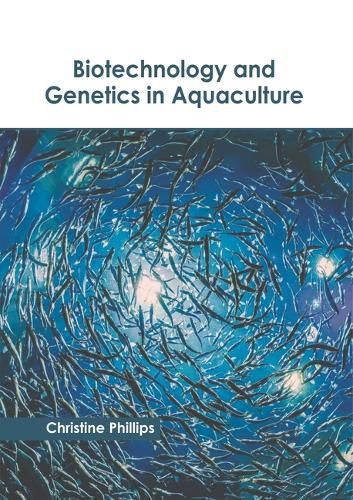Readings Newsletter
Become a Readings Member to make your shopping experience even easier.
Sign in or sign up for free!
You’re not far away from qualifying for FREE standard shipping within Australia
You’ve qualified for FREE standard shipping within Australia
The cart is loading…






Aquaculture or fish farming, is the controlled cultivation of aquatic organisms in confined environments such as tanks or ponds. It serves as an essential factor in meeting global seafood demand and assuring food security. Aquaculture involves the deliberate breeding, feeding and harvesting of fish, shrimp and other species under controlled conditions, reducing pressures on wild fish populations. Recent advancements in genetics and biotechnology have revolutionised aquaculture by enabling selective breeding for desirable traits, developing disease-resistant strains and enhancing growth rates. However, effective management strategies are important to reduce environmental impacts, including water quality degradation and disease outbreaks. Through ongoing technological innovation and sustainable practices, aquaculture continues to expand its role in supporting economies and food production worldwide. This book contains some path-breaking studies in the field of aquaculture. Most of the topics introduced in this book cover new techniques and the applications of aquaculture. It will serve as a valuable source of reference for graduate and post-graduate students.
$9.00 standard shipping within Australia
FREE standard shipping within Australia for orders over $100.00
Express & International shipping calculated at checkout
Aquaculture or fish farming, is the controlled cultivation of aquatic organisms in confined environments such as tanks or ponds. It serves as an essential factor in meeting global seafood demand and assuring food security. Aquaculture involves the deliberate breeding, feeding and harvesting of fish, shrimp and other species under controlled conditions, reducing pressures on wild fish populations. Recent advancements in genetics and biotechnology have revolutionised aquaculture by enabling selective breeding for desirable traits, developing disease-resistant strains and enhancing growth rates. However, effective management strategies are important to reduce environmental impacts, including water quality degradation and disease outbreaks. Through ongoing technological innovation and sustainable practices, aquaculture continues to expand its role in supporting economies and food production worldwide. This book contains some path-breaking studies in the field of aquaculture. Most of the topics introduced in this book cover new techniques and the applications of aquaculture. It will serve as a valuable source of reference for graduate and post-graduate students.